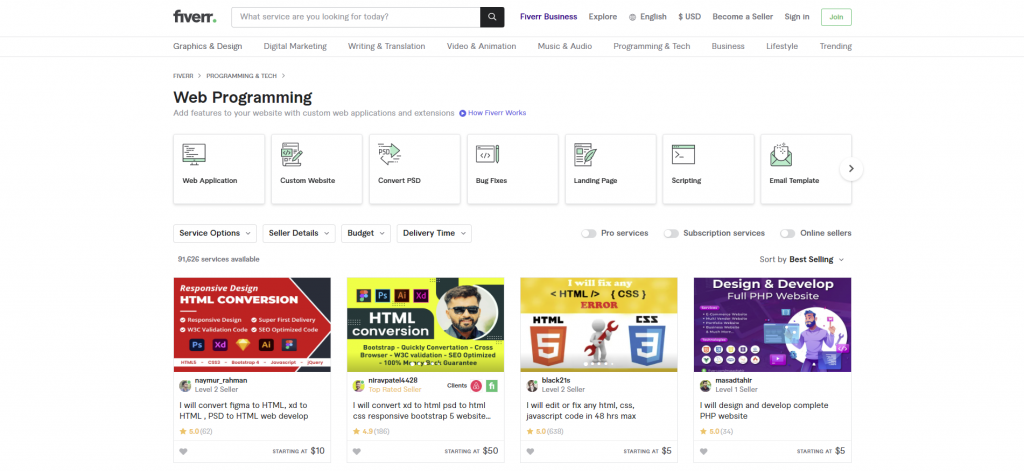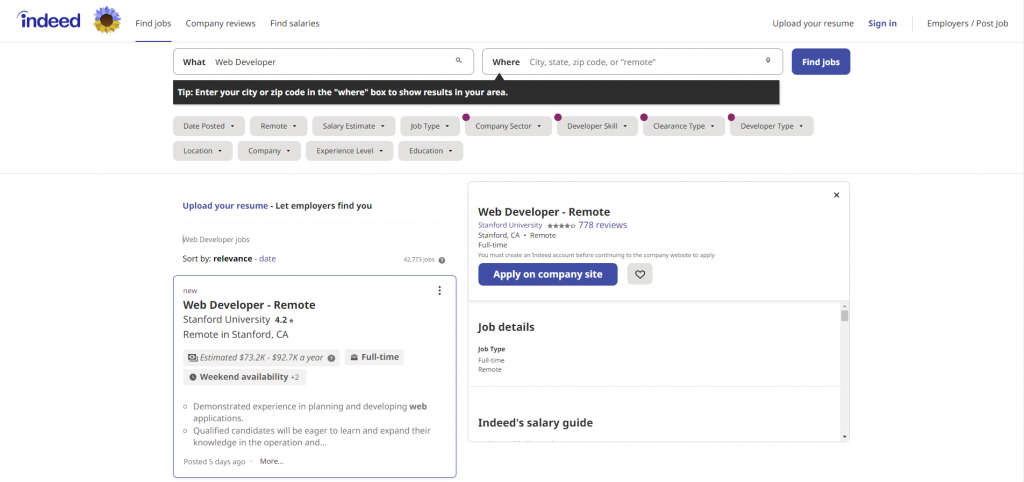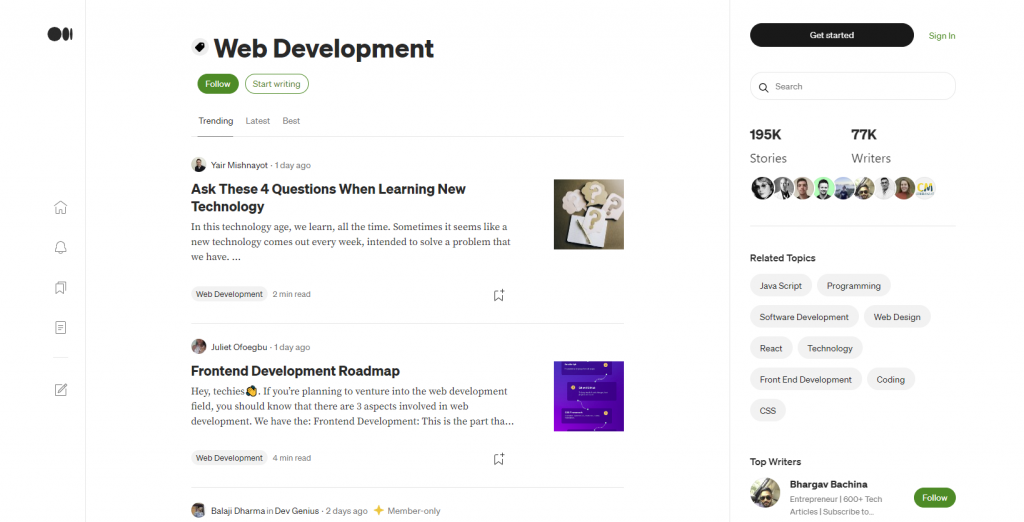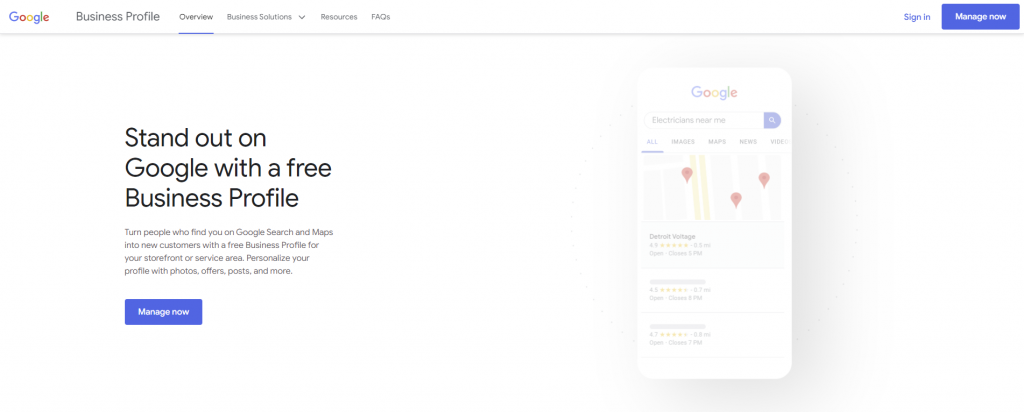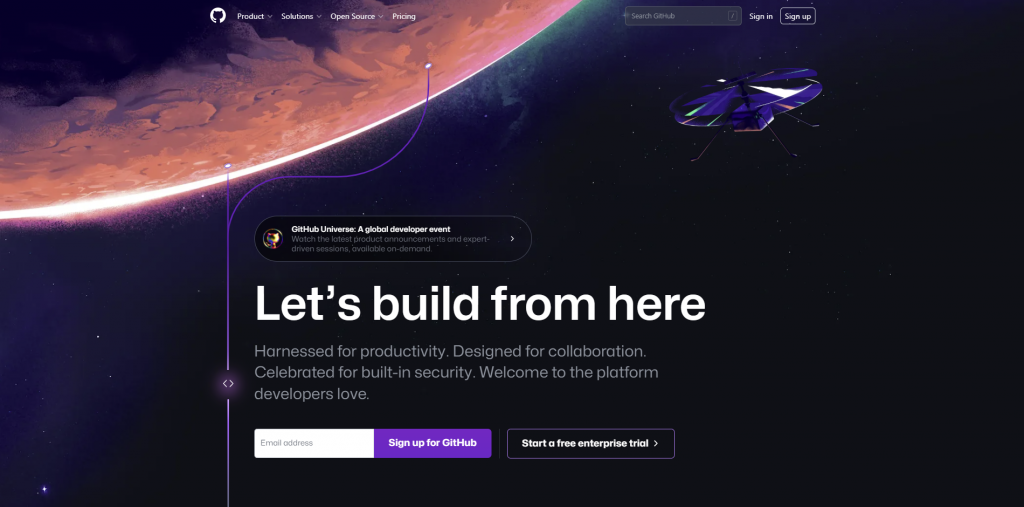How to Get Clients as a Freelance Web Developer: 14 Strategies + Tips for Beginners

Due to the rapid growth of the web development industry, the demand for its professionals is on the rise.
As of now, there are more than 40,000 job openings for web developers in the US alone, with an average starting developer salary of $65,771/year. What’s more, the industry’s employment is projected to grow 23% for the next ten years ‒ higher than other occupations.
If you’re thinking about entering the web development industry, you can become a freelance web developer. It’ll be easier to transition into a full-time web developer once you have a better sense of the job and master the required skills.
In this article, we’ll share 14 strategies to help aspiring web developers jumpstart their freelance businesses. We’ll also give tips on what freelance web developers can do to attract clients at the beginning of their careers.
Download web developer resume template
How to Get Clients as a Freelance Web Developer
One of the biggest struggles of starting a freelancing career is finding clients with projects that suit your skill set. Keep reading as we’ll go through 14 ways to attract more clients you want to work with.
1. Build an Online Portfolio
As an independent contractor, a freelance developer should have an online portfolio to sell web development services more efficiently. Besides showcasing your past projects, a portfolio gives potential clients insights into your skills, values, and training.
We recommend building an online web developer portfolio to make sharing and managing content easier. Secure professional hosting to ensure a seamless user experience, and buy a domain name that resonates with your personal brand.
To make this process easier, our Hostinger Website Builder package comes with a hosting plan, a free domain name, and an AI site builder solution, enabling you to launch your online portfolio effortlessly.
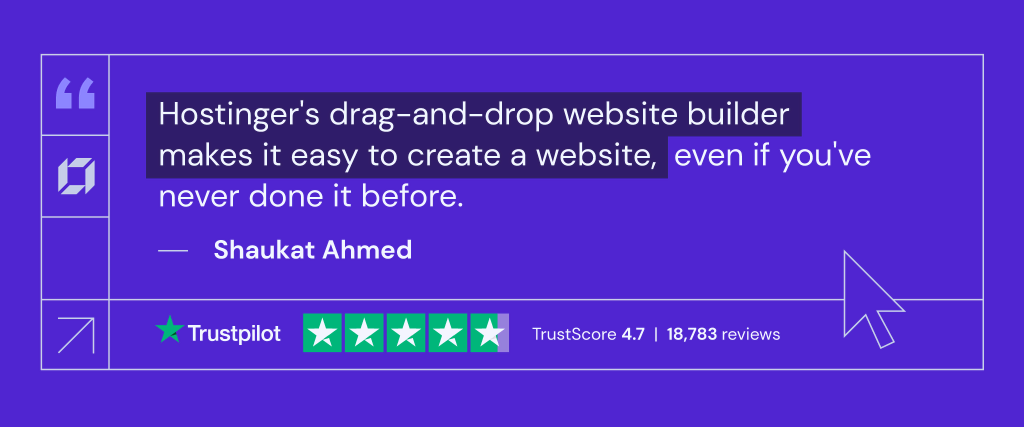
If you don’t have prior experience, include web development certifications on your portfolio website. Many eLearning platforms like Udemy and Coursera offer free and paid online courses and certificates upon completion. The goal is to show that you’re keeping up with the trends and have the necessary skills to complete clients’ projects.
Additionally, brainstorm a unique selling proposition that differentiates you from other freelancers. For instance, you can highlight your specialization in a specific programming language or digital marketing skills.
To get inspired, feel free to browse other web developers’ portfolios.
2. Use Freelance Web Developer Websites
Many freelance web developer websites like Fiverr, Upwork, and Gigster promote various short-term and contractual-based projects. The competition might be fierce, and you’ll likely have to take underpaid projects when starting out. As you gain reputation, experience, and positive reviews, finding clients willing to pay more will be easier.
Some freelance platforms have sub-sections for different web development services. If you specialize in a particular programming language or a niche, take advantage of this grouping system to showcase your skills and stand out from other freelancers.
Besides optimizing your profile for search engines, include your preferred niches and areas of specialization in your bio.
Furthermore, write your bio page in simple English and be straightforward with your marketing message. As project owners and recruiters scroll through many candidates, keep your pitch short and on point.
3. Browse Online Job Boards
Recruiters from reputable companies often use online job boards like Indeed and Glassdoor to look for web developers ‒ one of those opportunities can be your lucky break.
Before jumping into the job market pool, don’t forget to polish your web developer resume. Make sure it has the latest contact information, an overview of your technical and soft skills, certification, and past projects you have worked on. A well-thought-out resume can help you stand out from the crowd.
Some recruiters conduct job interviews to narrow down their candidates. Research the company’s hiring process and do a mock interview to increase your chances of success.
Last but not least, optimize your profile for search engines. Add keywords related to your expertise and professional skills to the profile description to attract relevant recruiters.
4. Create Connections on LinkedIn
At the time of writing this article, LinkedIn has over 875 million users across 200 countries worldwide. The platform’s user base comprises more than 58 million companies, LinkedIn receives 101 job applications every second, and eight people get hired every minute.
With this in mind, creating a LinkedIn profile can help you become a successful freelancer.
Besides leveraging LinkedIn’s job search page, you can also secure job opportunities on the platform through connections. Create quality, engaging posts that encourage discussions and share your professional thoughts with other users on theirs.
Having meaningful relationships with other professionals who work in the same field as yours helps to build trust and credibility as well as earn solid referrals. Who knows, one of your connections might turn into a potential client or refers you to a web development company where they work.
Many companies see a LinkedIn profile as another form of a CV. Therefore, having a professional LinkedIn profile with many connections can give you an advantage in hiring.
5. Contact the People You Know
Job opportunities can come from various sources, including those within your inner circle. Your family, friends, acquaintances, or someone they know, might need a new website or a custom point-of-system solution for their business.
This method is excellent for expanding your portfolio site, especially if you don’t have any experience yet. That said, make sure to only take projects you’re confident enough to complete. As you know these clients personally, not delivering what you promise can hurt your relationships with them.
6. Ask for Referrals
When working on a project, give your best effort and exceed client expectations. This way, you will build relationships with clients, growing your personal brand.
If your existing clients are happy with your performance and work, it’ll be easier to ask them for referrals and bring you more clients. In fact, a referred client is 18% more loyal than those obtained by other means.
Additionally, don’t be afraid to reach out to past clients too. Besides getting a referral, you will have an opportunity to remind them about yourself and get another project.
7. Do Outreach
Since you work independently as a freelance developer, you need to be proactive in finding potential clients to work with. Don’t be afraid to approach other people and pitch your web development services to them ‒ you’ll never know what they have in mind until you ask.
You can start by sending out a web development proposal to small businesses in your area. See if any local business owners have pain points you can solve or know someone who needs your services.
Collaborating with other freelance developers with different specialties is another way to find clients. You can either work with them on tackling large projects requiring more than one web developer or gain referrals from them.
It’s also worth approaching web development agencies, as they might be looking for contract or freelance web developers. They can invite you to join their full-time team if they’re happy with your work.
8. Network With Potential Clients
Meeting potential customers is one of a freelance web developer’s best marketing efforts. It helps to leave a lasting impression and build trust with new clients, which can go a long way to scale your freelance business.
The interaction also lets potential customers assess your work ethic and professional characteristics, influencing their hiring decisions.
There are many ways to communicate with potential new clients. You can build a presence on social media platforms, attend networking events, and join online communities. We’ll cover each of these methods in the following sections.
Remember that maintaining relationships with previous clients is just as important as finding new ones. Balance your time between these two client bases and make a social call every once in a while.
9. Do Content Marketing
Having a portfolio website helps to influence recruiters’ hiring decisions. However, it is not enough to simply add it to your job application as other people won’t see it then. To reach the best possible result, consider optimizing it for search engines to drive organic traffic to the site.
First, write articles the web development industry. These can be helpful tutorials, overviews of the newest tools, or stories about how you helped your clients. Then, include keywords relevant to your skills and specialties to help match your content to the right search intent. Finally, apply the best search engine optimization (SEO) practices to help rank your content higher.
Many blogging platforms like Ghost and Medium offer the tools you need and a massive audience base.
On the other hand, creating a blog inside your portfolio website gives you the freedom to experiment with different types of content and formats. Plus, you don’t have to compete with other blogs within a saturated platform to generate leads.

If you’re not interested in blogging, consider opting for video content marketing. Create a YouTube channel and make videos about topics related to web development, such as tutorials, tips and tricks, and the latest trends in the industry.
Put extra effort into designing a unique yet appealing visual look across your videos to establish your brand and attract traffic. For inspiration, check out popular YouTube channels for web developers like thenewboston, Programming Knowledge, and Traversy Media.
10. Make Use of Local SEO
Besides outreaching small businesses, you can also target general clients in your area by optimizing your portfolio website for local search results. Doing so will boost your brand’s visibility among local communities, resulting in less competition to establish your new business and gain more clients.
Start by listing your business on Google My Business ‒ use your home address if you don’t have a separate workspace. Besides including local keywords on your portfolio site, consider creating localized versions of the site’s content to appeal to local audiences.
After completing a project, ask your client to leave a review on the website. Besides building trust, reviews can boost a website’s ranking on search engine result pages (SERPs).
11. Build Online Presence
As the job market is getting more saturated each year, building a solid online presence is essential for distinguishing yourself from other freelancers.
One of the best and most popular methods for growing brands and businesses is to be active on social media. Publish fresh, engaging social media posts regularly and optimize your profile for search results to gain traction quicker.
Additionally, use these platforms to maintain contact with your past and current clients.
If you have the budget to spare, consider setting up a Google Ads campaign to drive traffic to your website. The platform lets you display ads to specific audiences based on various targeting options, such as location, demographics, keywords, and topics.
12. Attend Events and Conferences
Attending online events and conferences is another excellent way to grow your network without leaving home. You will meet IT professionals of all skill levels and potential employers looking to hire new talents, expanding your network with quality connections. Plus, it’s an excellent opportunity to improve your skills and knowledge.
Browse conference platforms like Conference Monkey and Resurchify for worldwide events that align with your interests. You can also search for online events on LinkedIn via the Events homepage or using the search bar.
Furthermore, check whether such events are happening in your area – live communication only increases your chances of meeting ideal clients.
13. Build a Reputation on Online Forums
A strong online presence can bring you even more projects if supported by a solid reputation. It helps build better relationships and trust with potential clients, earning you better opportunities down the road.
Start by answering queries on web development forums like Stack Overflow, Digital Point, and CoffeeCup. Be personal and sincere when communicating with other users, and express appreciation when you receive feedback. The key is to put your best version forward.
14. Create a GitHub Repository
If you have worked on open-source projects before, you might have benefitted from using a repository hosting service like GitHub. It also comes with other perks that can boost your freelance business.
First of all, hosting your projects on GitHub makes showcasing them easier. You can link your GitHub account to job applications as an extension of your resume and portfolio, increasing your chances of getting hired.
Secondly, GitHub offers plenty of collaboration tools to partake in other web developers’ open-source projects and expand your portfolio. Doing so helps to build a strong reputation, grow connections, and gain feedback from fellow professionals.
Finally, being part of the largest open-source community means more learning opportunities from seasoned professionals. It’s an ideal platform to grow your skills without enrolling in paid courses.
Tips for Getting First Clients as a Freelance Web Developer
The following are several crucial tips on how to get your first clients and enter the freelance web development industry.
Do Not Limit Yourself to Online Projects
The number of online projects available may dwarf offline projects, as there are no geographical barriers. However, it also means you must compete with web developers from across the globe to win a project, which is highly challenging for a new freelancer.
For this reason, you shouldn’t shy away from offline channels or take offline projects for granted.
Make an effort to network with local businesses and collaborate with fellow web developers in your area. You’ll have more chances of landing a project by conducting your search on multiple channels.
Offer Services for Free When Starting Out
Giving away your services for free might seem counterproductive, but it can give you the momentum to kickstart your freelance business. This strategy benefits freelancers who don’t have a resume yet or are struggling to grow their network.
Business owners rarely choose web developers without experience as there’s no proof of their skills. Offering free services helps to minimize financial risks that discourage the project owner from hiring you in the first place and creates an opportunity for building your resume ‒ a win-win solution for everyone.
For instance, start by approaching small businesses that don’t have an online presence yet. Offering them to create websites with basic functionality will help both of you.
They will still need to pay for hosting. Luckily, there is affordable web hosting for professionals that will help you set up a client project and take it off the ground in less than an hour for a reasonable price.
Do Not Bid on Projects of the Top Freelancing Platforms
Many freelance platforms, especially popular ones, implement a bidding system to help project owners find the right freelancer for the job.
Like a job interview, a freelancer must submit a bid proposal containing their rate, proposed timeline, and relevant experience on a specific project. The project owner will pick one or several freelancers from the pool of bidders who fit their budget and preferences.
The bidding system often puts new freelancers at a disadvantage since they can’t place a compelling bid due to their lack of experience. On top of that, new freelancers must compete against seasoned freelancers to outbid well-paying projects.
Starting on smaller, non-bidding freelance websites will increase your chances of getting a project. These platforms won’t be as competitive as the popular bidding sites, putting freelancers on equal footing in the competition.
The signup process on non-bidding platforms tends to be more complicated than on bidding platforms, as you must pass the hiring process to enter their freelancer pool. However, once you succeed, you’ll get a steady flow of projects assigned by the platform’s staff.
Look Through Facebook Groups Related to Your Work
Each social media platform has unique network-building features. For example, over 1.8 billion use Facebook Groups to connect with others with similar interests. You can leverage this feature’s popularity to get more connections and find your target client.
In 2021, over 10 million groups existed on Facebook, each catering to different interests and goals. Go to the Facebook Groups homepage and filter your options based on categories, locations, and keywords.
While Facebook lets you join up to 6,000 groups, it’s best to only pick groups that resonate with you to avoid cluttering your timeline.
Highlight Your Areas of Expertise
Once you find areas of expertise to focus on, make sure to add them to your resume and professional online profiles. Recruiters and business owners have a lot of job applications to look through, so making yours easy to read can help you create a lasting impression.
Add your professional skills to your resume summary to grab recruiters’ attention. Back them up with relevant responsibilities, achievements, and past projects in the work experience section.
Most importantly, tailor your resume to each job opening by aligning your technical skills with the project’s requirements. It shows that you understand what the company is looking for, proving that you are the right person for the job.
Conclusion
Anyone can start freelancing as long as they have in-demand skills and services to offer or are willing to learn them. This career path is ideal for professionals who want to work flexible hours and have another source of income.
As a freelance web developer, getting your first clients tends to make or break your journey in the industry. However, you can overcome this stage of career building with hard work and effort.
You have gone through different ways to attract clients and learned some tips to kickstart your freelance web developer career. Should you have any more questions or comments, leave a comment below. Good luck!


